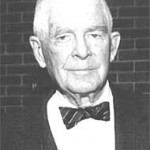2009 Nathan Burkan Memorial Competition Winners
 Every year, the American Society of Composers, Authors and Publishers (ASCAP) sponsors the Nathan Burkan Memorial Competition, named after the lawyer who founded ASCAP in 1914. The competition awards prizes at accredited law schools across the country for the best one or two papers in any area of copyright law at that law school. I am very pleased to announce this year’s winners of the competition at Marquette:
Every year, the American Society of Composers, Authors and Publishers (ASCAP) sponsors the Nathan Burkan Memorial Competition, named after the lawyer who founded ASCAP in 1914. The competition awards prizes at accredited law schools across the country for the best one or two papers in any area of copyright law at that law school. I am very pleased to announce this year’s winners of the competition at Marquette:
- First Prize: William K. Pridemore II, Foul Ball! Why the Digital Millennium Copyright Act Strikes Out on Fair Use
- Second Prize: Kevin P. Rizzuto, Just Say No (to Injunctions Enjoining Future Sale or Lease of Copyrighted Residential Homes)
First prize carries with it an award of $600, and second prize is awarded $250. Congratulations to Will and Kevin!

 As my students in Constitutional Law are well aware, my Con Law professor in law school was Archibald Cox. If you doubt me, you can look it up on his
As my students in Constitutional Law are well aware, my Con Law professor in law school was Archibald Cox. If you doubt me, you can look it up on his